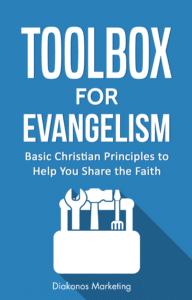Knowing which social media platform you (or your church) should focus on is a little bit like finding the right type of hot sauce to go with your burrito. All of them could be fine, but which one will provide the best experience?
Normally, we tell most everyone to start with Facebook, simply because it’s got the largest audience and it’s the one most people are using already.
But that doesn’t mean it’s the best for you. Depending on a few different factors, you may need to explore other options.
What Factors Should I Consider?
Obviously, no two social media platforms are the same.
Some have a single feature while others try to be all things to everyone.
Some focus on images, while others are text-based.
Some embrace the idea of community, while others are time-sensitive.
Which one you ultimately choose will be based off your answer to the following questions.
Audience Demographics
Audience selection is arguably the biggest component of which platform you use. Some people, no matter how efficient a channel may be, simply will not use it.
Period.
(Example: Tik Tok)
That doesn’t mean you should never use it, but it does mean that it’s most likely not the best option for you at this time.
Instead, focus on where your current audience spends most of their time and invest in that platform. For your first run at social media, you’ll want to extend your reach as much as possible.
Generally, we recommend people choose one social media platform, maximize it, and move on, but that’s just so people won’t feel overwhelmed. Honestly though, audience overlap between platforms is pretty huge, so regardless of what channel you actually choose, you’ll most likely reach your audience.

Your Own Content Preferences
If audience selection is the first thing you should be thinking about when deciding on a social media strategy, then personal content preferences is a close second (a 1B, if you will).
We talk to preachers all the time who hate writing; if that’s the case, Youtube or Instagram may be more their speed. Ironically, some hate being on camera regularly, so they prefer to write their thoughts.
Either one is fine, but remember to consider your content cadence as well. A platform like X (formerly Twitter) is more time-sensitive than something like Pinterest. If you can’t commit to writing multiple tweets a day and engaging with an ongoing conversation, it’ll be hard to make progress if you don’t already have a devoted following.
Native Features
The last several years has seen social media channels blend their features together. Facebook used to only have a “wall” that you could write on, but once Twitter appeared, they created “status updates.”
A similar shift occurred when Instagram was created (before they were bought by Facebook). In addition to status updates, you could create reels on both Facebook and Instagram, and even cross-post them to appear simultaneously on each platform.
Youtube noticed the trend of short-form video and created Youtube Shorts, designed to be less than 90 seconds on average.
None of that negates the overall point that each channel has specific features that they excel in more than others. They’ve invested the time in developing these parts of their platform, and historically have shown a wider reach than similar features on competing platforms.
Find the channel that has the features that allow you to create the content you are most comfortable creating.
Then, master it.
Advertising Potential
The name of the game when it comes to social media channels is paid ads. This how these channels make money: They have an incredible amount of information about their users (that you’ve willingly submitted to them), so they’re able to provide much more specific advertising potential to marketers.
What that means is that every social media platform will eventually have an ads platform (if they don’t already).
If they do have an advertising potential, but it’s not working very well, you can bank on them spending massive amounts of capital to fine tune it until it does work.
As a general rule, the newer the platform, the cheaper the ad spend will be. Unfortunately, along with those cheaper spends, you can also expect poorer results. Facebook, for instance, is a fantastic way to drive leads, but it’s super saturated. By comparison, Twitter ads are largely ineffective, but are much cheaper as a whole.
And if you can master TikTok ads, you’ll probably strike the right balance between the two, so it’s worth checking out.
Which Platform is Right For You?
It’s nearly impossible to tell how many social media platforms exist in the world today. The vast majority of them are either irrelevant, outdated, or hyper-specific, so they’re not worth discussing.
As of July 2023 however, 15 social media channels boast at least 400 million active users. Seven of those have over one billion, and four of those seven are owned by Meta Platforms (parent company of Facebook).
If you want, it is 100% okay with me to ignore all of the channels on this list and build a home for yourself somewhere else. Platforms like Twitch, Linkedin, Telegram, WhatsApp, and even Pinterest all can be effective, but most churches don’t use them regularly, so they’re not on this list.
For our purposes though, we’ll focus on six that should be on your radar.
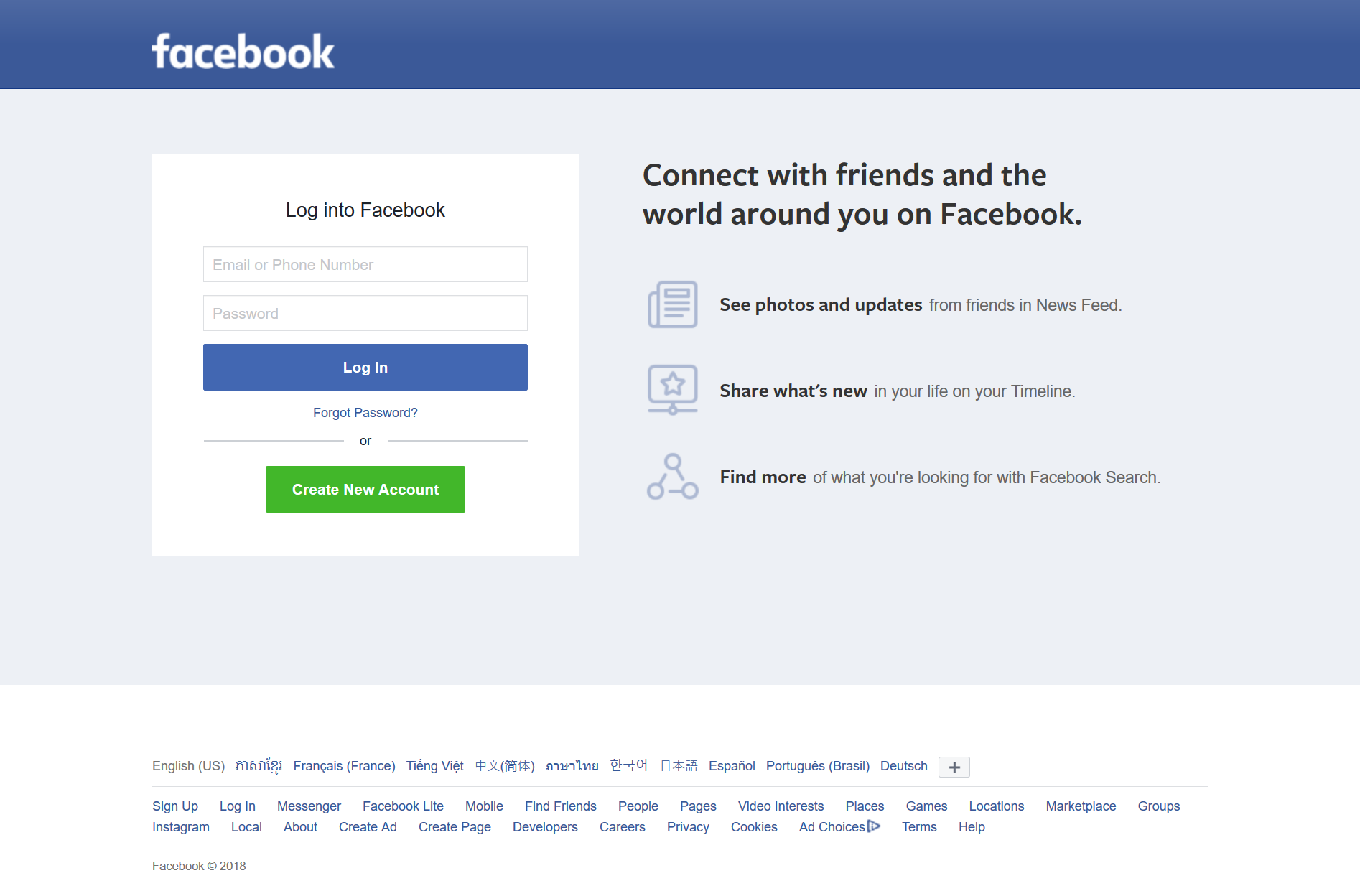
Let’s start with the granddaddy of them all, shall we?
Created in Mark Zuckerberg’s Harvard dorm room in the spring of 2004, Facebook is the gold standard when it comes to social media networks (for better or for worse).
Not only did it boot Tom and all his MySpace friends into oblivion, it followed a near perfect — albeit controversial — path to stratospheric growth. As of October 2023, Facebook has more than three billion active users, which is alllllmost half the world’s population. It became the top social media channel very quick and has virtually never relinquished that top spot.
The key to making gains on Facebook is two-fold. First, engage the community discussions that are already taking place, and create a dialogue with people that are there.
Ever since the Cambridge Analytica scandal in 2019, Facebook has reoriented itself to be community-based, increasing the reach of groups and decreasing the reach of pages.
Because of that, Facebook is mostly a pay-to-play platform these days. Which brings me to the second point…
Paid ads. Besides a focus on building community, you should also be prepared to pay for reach. It doesn’t have to be much — we’ve gotten results with even a $2 per day ad spend — but it’s necessary if you want to penetrate into your local community.
For 99% of churches and people, Facebook should be the first social network you build a home. Once you maximize there, move on to other platforms.
X (Formerly Twitter)
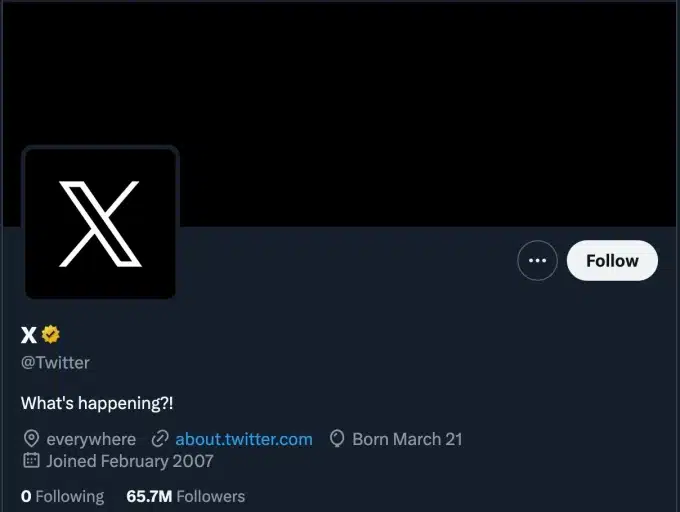
Twitter (X) is a fickle beast. If you’re the type of person that just loves getting your hands dirty in a constant fight, Twitter is the right choice for you.
The rapid-fire, breaking news nature of X means you can get information at breakneck speed, and can also respond to it just as quick. Your tweets can be retweeted, liked, and commented on, which can possibly make them go viral.
It’s possible to embed videos on your X feed, but the main use case is short, text-based responses — 280 characters are less. If you enjoy being a part of an ongoing conversation and want to contribute your voice, X is a great option.
Youtube
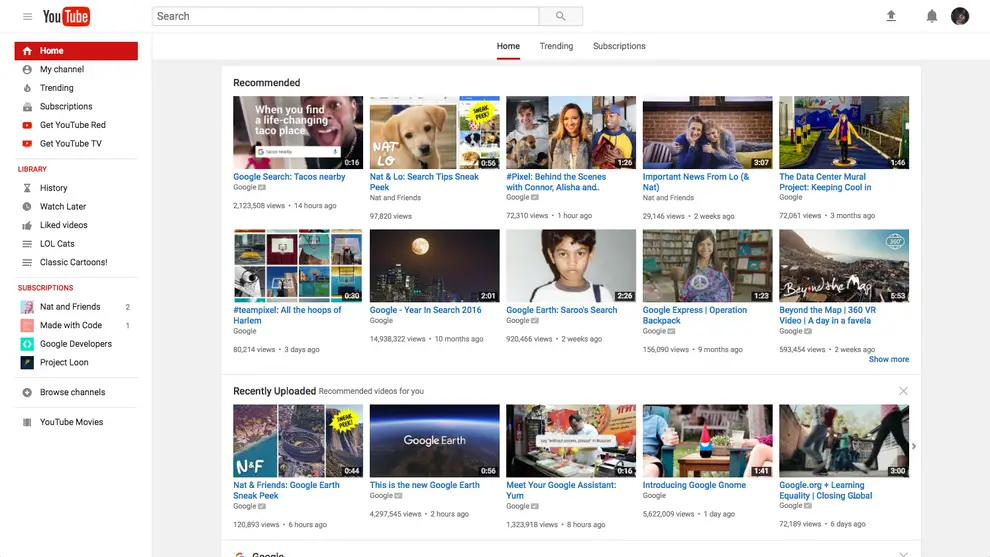
Most churches already use Youtube to host sermon video or livestream their services, but it’s hard to cut through the noise and really establish your presence if that’s the only use case.
Ideally, you would create videos that are specific to Youtube, which means investing in a professional backdrop, editing software, inserting captions, optimizing the description, creating playlists, and more.
The Loop 287 church in Lufkin decided to do this a few years ago and converted a spare classroom into a full on Youtube studio. Their Youtube channel currently has more than 200 subscribers and is growing slowly but surely thanks to their efforts.
When it comes to what type of content you can create for Youtube, you have to get creative.
Can you create Youtube shorts out of sermon snippets?
Can you make a secret/private video playlist that’s only shared to subscribers for your mailing list?
Can you create daily devotional videos that drop every single morning?
Most people are not logging on to watch an entire 30+ minute sermon unless they’re already a fan. For that reason, simple discovery with those types of videos can be a challenge.
Instead, look to create meaningful video content in addition to the content you’re already producing as a church. Then, you can shoehorn the other content in over time.
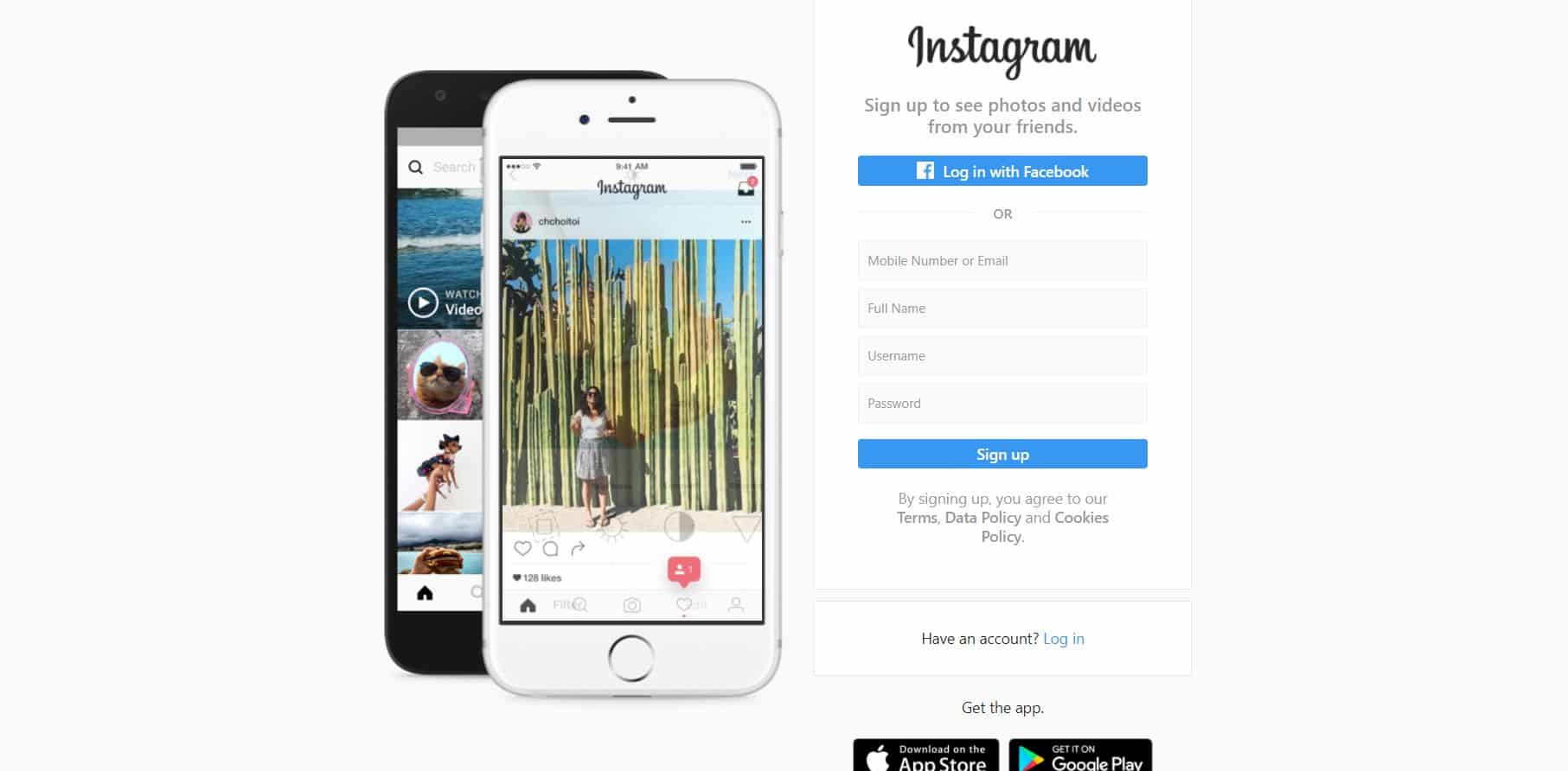
Another Meta platform, Instagram has somehow been able to retain their individuality despite being part of a broader ecosystem. Instagram focuses on images and short-form video, which originally was a part of Facebook’s vision and could have been a legitimate competitor to Facebook, had it not been acquired early by Zuckerberg.
Instagram is hugely popular in its own right, especially in creating connections with influencers and celebrities. Some creators can charge $10,000 per post, which actually is a bargain compared to the traffic and revenue it can create for the sponsoree.
So how can churches use it? Scripture images are an obvious win, but consider also the everyday applications of something like Instagram. Instead of creating a bunch of finely-tuned pieces of content that will live in perpetuity, fire up Instagram and create a reel of a single moment in time.
For example, you may be sitting in your office and wrestling with a tough piece of Scripture. You finally wrap your mind around what’s going on, create a quick video explaining the concept, then share it to your account or the church’s.
The key to any kind of social media success is authenticity, and this is the number one reason why people love Instagram. You’re able to connect with people on a more intimate basis by peeking into their lives.
How can you use Instagram to make the Bible seem more real to people in everyday life?
TikTok
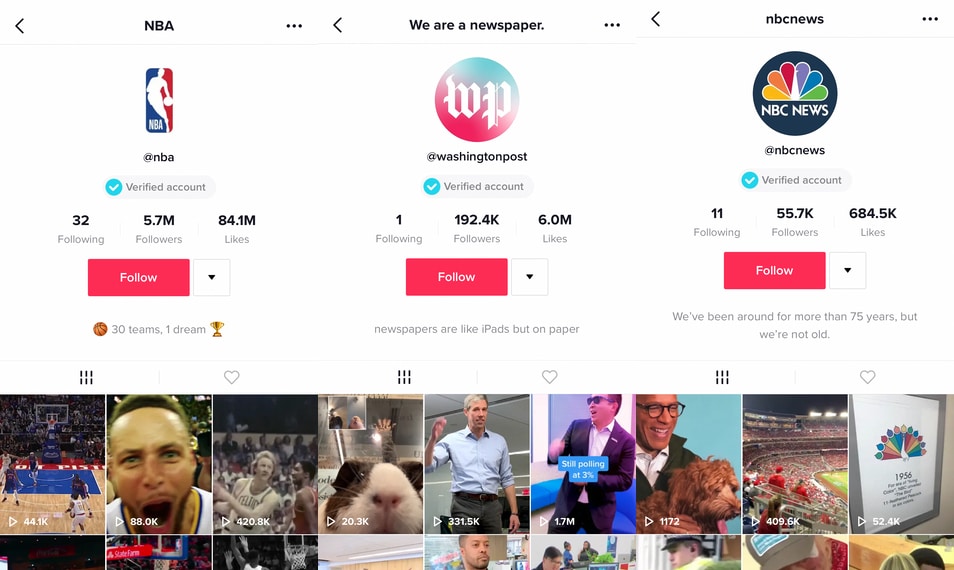
At it’s best, some would call TikTok “controversial.” Many don’t like it’s semi-shady security features, but if you’re able to look past that, what you’ll see is an incredible opportunity for viral growth.
Unlike some of the other platforms on this list, TikTok doesn’t solely rely on followers to view their content. Instead, TikTok has a couple queues: “following,” which shows you videos from people you’ve subscribed to, and “for you,” which are videos that TikTok thinks you would appreciate.
Like Instagram and Youtube, TikTok is a video-based platform, but it’s content is generally shorter than others. Most successful videos are between 15-30 seconds.
If TikTok is where you want to spend your time, I suggest taking advantage of viral trends. If a funny video or song is super popular for some reason, create a parody of it and upload it as soon as possible.
But TikTok isn’t just for humor; several churches have used it to create really unique short-form videos that have had varying success too, so give it a whirl if you’re interested.

The last but possibly most intriguing option on this list is probably Reddit. If you’re unfamiliar with the platform, it’s a social network that relies exclusively on smaller communities to generate discussions around certain topics.
For instance, there is a subreddit completely dedicated to members of the church of Christ. If you poke around, you’ll probably see conversations that are worth engaging in (unfortunately, there’s also an “ex church of Christ” subreddit as well).
What makes Reddit a challenge for most advertisers is that many subreddits are vehemently opposed to any kind of self-promotion or spam. The moderators and community members will absolutely destroy anyone who tries to use their subreddit for commercial purposes, which makes paid advertising nearly impossible.
Conversely, this type of loyalty also can help create an amazing amount of traction for your church blog if you’re able to harness it correctly. Reddit posts can show up in search results for regular topics, which can generate traffic for years as long as that post is relevant.
The best way to get started with Reddit is by creating an account and contributing to discussions that are ongoing. Help others with their issues, post legitimate questions, contribute to discussions, and then — and ONLY then — can you get away with sharing our own content.
Do it sparingly though. Any more and you risk getting the ban hammer on your account.
Which Platform Will You Choose?
As mentioned above, most everyone should begin their social media journey with Facebook.
But after that, which one will you commit to? Take your time to explore the nuances of each, compare them with your own resources, and dive in.


